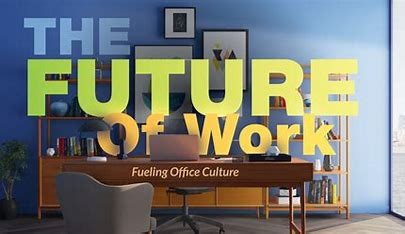The global workforce is undergoing a transformation, driven by technological advancements, changing societal expectations, and unprecedented events like the COVID-19 pandemic. As businesses adapt to this evolving landscape, remote and hybrid work models have emerged as significant trends shaping modern careers. These models offer flexibility and convenience, redefining traditional work environments and expectations. In this blog, we will explore how remote and hybrid work models are influencing the future of work, the benefits and challenges they present, and what professionals need to thrive in this new era.
The Rise of Remote and Hybrid Work
Remote work, once considered a niche or temporary solution, has now become a mainstream option for many companies across various industries. The pandemic accelerated this shift, forcing organizations to adapt quickly to a remote work setup. As businesses realized the potential for increased productivity and reduced overhead costs, many chose to continue with remote work even as restrictions eased.
Hybrid work, a blend of remote and in-office work, has also gained popularity. This model allows employees to split their time between working from home and the office, offering a balance that caters to both personal preferences and business needs. According to a survey by McKinsey, nearly 90% of respondents said they would prefer a hybrid work model if given the choice, highlighting the growing demand for flexibility.
How Remote and Hybrid Models are Shaping Careers
- Flexibility and Work-Life Balance: Remote and hybrid work models offer unparalleled flexibility, allowing employees to design their work schedules around their personal lives. This has led to improved work-life balance, reducing stress and burnout, and enabling professionals to pursue other interests or responsibilities.
- Expanded Talent Pool: Companies are no longer limited by geographical boundaries when hiring. Remote work allows businesses to access a global talent pool, enabling them to find the best candidates regardless of location. This has also opened up new opportunities for professionals in regions with fewer local job prospects.
- Redefining Productivity: The traditional 9-to-5 workday is becoming obsolete as remote and hybrid models encourage a focus on outcomes rather than hours worked. Employees are now measured by their contributions and results, leading to a more meritocratic work environment.
- Embracing Technology: Remote and hybrid work models rely heavily on technology for communication, collaboration, and project management. As a result, professionals must adapt to using various digital tools and platforms, which can enhance their tech-savviness and adaptability—critical skills in the modern workforce.
- Career Development and Networking: While remote work offers many benefits, it can also pose challenges for career development and networking. Without regular face-to-face interactions, professionals may find it harder to build relationships and advance within their organizations. Hybrid models can mitigate this by providing opportunities for in-person engagement.
The Challenges of Remote and Hybrid Work
While remote and hybrid work models offer significant advantages, they are not without challenges. Companies and employees must address these to fully realize the potential of these models:
- Communication and Collaboration: Maintaining effective communication and collaboration in remote and hybrid settings can be challenging. Organizations must invest in robust communication tools and foster a culture of transparency to ensure teams remain connected and aligned.
- Company Culture: Building and maintaining a strong company culture can be difficult when employees are dispersed. Hybrid models can help by encouraging in-person interactions, but companies must be intentional about creating a sense of belonging and shared purpose.
- Work-Life Boundaries: While flexibility is a significant benefit, it can also blur the lines between work and personal life. Employees must set clear boundaries to avoid burnout and maintain a healthy work-life balance.
- Cybersecurity: With remote work, the risk of cyber threats increases as employees access company data from various locations and devices. Companies must implement stringent cybersecurity measures to protect sensitive information.
Preparing for the Future of Work
As remote and hybrid work models continue to shape modern careers, professionals must proactively adapt to thrive in this new environment. Here are some strategies to consider:
- Develop Digital Literacy: Mastering digital tools and platforms is essential for success in remote and hybrid work environments. Invest time in learning new technologies and staying updated with the latest trends.
- Enhance Communication Skills: Strong communication skills are crucial for effective remote collaboration. Focus on improving your ability to convey ideas clearly and concisely, both in writing and in virtual meetings.
- Prioritize Work-Life Balance: Set clear boundaries between work and personal time to prevent burnout. Establish a routine that allows you to disconnect from work at the end of the day.
- Foster Relationships: Make an effort to build and maintain professional relationships, even in a remote setting. Regular check-ins, virtual coffee chats, and attending in-person meetings when possible can help you stay connected with colleagues and mentors.
- Embrace Lifelong Learning: The future of work is dynamic, and continuous learning is key to staying relevant. Pursue professional development opportunities, whether through online courses, workshops, or certifications, to keep your skills sharp.
Conclusion
The future of work is undoubtedly being shaped by the rise of remote and hybrid models. These trends offer exciting opportunities for flexibility, innovation, and global collaboration, but they also come with challenges that require careful navigation. By embracing change, developing new skills, and maintaining a proactive approach to career development, professionals can thrive in this evolving landscape.
As we move forward, it’s clear that the traditional office environment will no longer be the norm for many. Instead, the future of work will be defined by adaptability, technology, and a focus on work-life balance—key factors that will continue to influence how we work and live.






